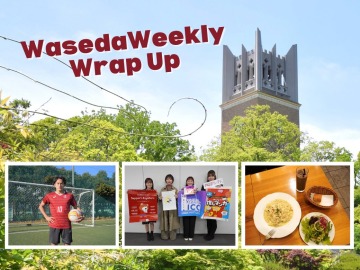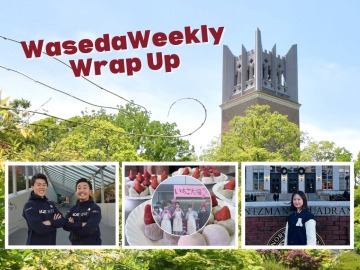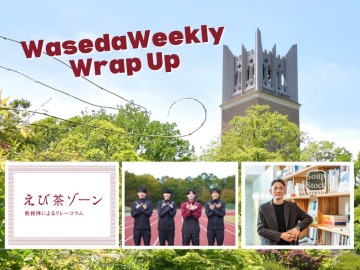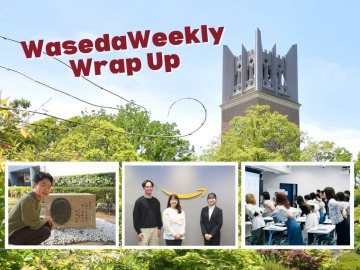Working Hard to Spread Awareness of Parasports! An Interactive Approach Through Research and Actualization
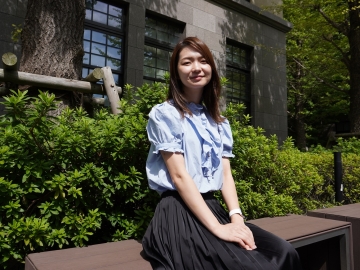
“I want to get rid of boundaries between people with disabilities and people without”
In 2022, 4th-year student Miyu Okada, from the Graduate School of Sport Sciences’ doctoral program, started a general incorporated association named Knockü where anyone can participate in parasports together. She also runs a parasports educational training program. Miyu studies the effects of parasports activities and is a member of the government’s Japan Sports Agency’s working group for the promotion of parasports.
Miyu attributed her interest in parasports to her experience playing handball for 11 years and her parents working as teachers at a special needs school. During her third year of college, she did some volunteer work which made her want to be more connected and contribute more to the services available. Miyu described how in parasports, especially wheelchair sports, the majority (people without disabilities) adapt to the minority (people with disabilities) to enjoy sports together.
When she studied in Germany, which is known as one of the most advanced countries in the field of parasports, Miyu was able to see how many sports clubs integrate both people with and without disabilities into different sports activities to the point that it is common for people with disabilities to play sports. In comparison, she says that there are only 25 sports facilities built for people with disabilities across Japan and so she feels a strong desire to get rid of the barrier between people with disabilities and those without.
Japanese article:パラスポーツの普及に奮闘! 研究や実践で双方向的にアプローチ
The Student who Works at a University: The Student Affairs Section’s Student Participation and Job Center
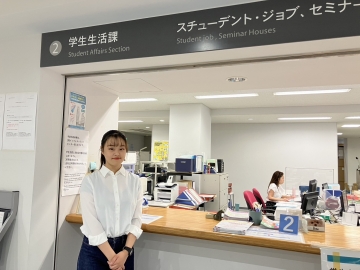
There are many students who are employed through student jobs while also taking classes at Waseda University. These students work to increase the reputation of Waseda University, and they are an indispensable part of the university. One of these students is Itsumi Shimizu, a third-year student in the School of Letters, Arts, and Sciences, who works at the Student Participation and Job Center (SJC) for the Student Affairs Section. SJC runs the Student Participation Encouragement Committee (SPEC), which plans and manages events that encourage student engagement. Additionally, they plan and manage health-related events for current students. For this article, Waseda Weekly asked Itsumi some questions about her work.
While looking for a part-time job, Itsumi stumbled upon a listing on the MyWaseda webpage. She thought that working at a university is an opportunity that does not come along often and that it would be a safe environment for her first job. She started working in 2021 during her first year as a student and usually works two to three times a week at the counter for the Student Affairs Section’s Waseda University Student Health Promotion Mutual Aid Association. Itsumi’s responsibilities include helping students who come to apply for assistance with medical fees, organizing documents, and answering the phones. Through her work she has learned the importance of working together with the people around you. Without the contributions from the staff and faculty working together, the events and daily workings around campus would never be possible.
Japanese article:【大学で働く学生】学生生活課「学生参画・ジョブセンター(SJC)」
Professor Miura, Please Tell Us, “How Do We Keep the Peace?”Part2
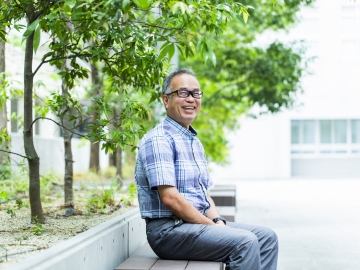
In the series “Lectures by Experts”, four professors give us hints about how to potentially solve some of the problems that challenge society. The theme for 2023 is “How Do We Keep the Peace?” Following Russia’s invasion of Ukraine, it is necessary to rethink what peace is. The series’ third guest, Professor Kiyoharu Miura (Faculty of Letters, Arts and Sciences), who specializes in Russian history and literature from the Middle Ages. In his first volume, he delved into understanding the Russian invasion through Russian history. In his latest volume, he focuses on the religious aspect of Russia.
Russia has its religious roots in the Greek Orthodox Church, not the Roman Catholic Church, which brings us to the Kievan-Rus’, a common root of Russia as well as Ukraine and Belarus’. There are two concepts born through these roots, Autocracy and Theosis. The idea of Autocracy is that the sovereign ruler at the head of the country appears as the earthly agent of the heavenly God=Jesus Christ. The idea of Theosis is the following: because Jesus Christ is completely human and completely God, by the grace of Jesus Christ there has come to be a possibility even for sinful humans to become God, and humans, in their order, have to be ready to make every effort for self-sacrifice as Jesus Christ did. Professor Miura says that these two ideas, or images, seem to be typical of the Orthodoxy. According to Miura, these two concepts are a large part of the hidden reception of the present leader amongst the Russian people. He goes on to say that though Autokrator, ruling with unrestrained power, and Theosis might sometimes cause tyranny, they themselves are far from harmful or inhuman. He gave two examples. Firstly, there was a period in Russian history in which Autocracy was used in a more restrained and human way, for example, by Tsar Alexis in the 17th century. Tsar Alexis made enormous efforts as God’s agent on the earth to keep peace among his people and protect their land. Secondly, a lot of Russian talented writers, poets, musicians, artists, scholars, sportspersons, etc. seem to be yet unknowingly encouraged by Theosis when achieving their success.
His final message for students was that there is no rush to understand everything and there is no need to feel embarrassed when you don’t know something. It is more important to question why; for example “Why did Russia invade Ukraine and what do the Russian people feel?” and acknowledge within yourself what you don’t know.
Japanese article:「平和をどう守る?」教えて! 三浦教授(後編)

